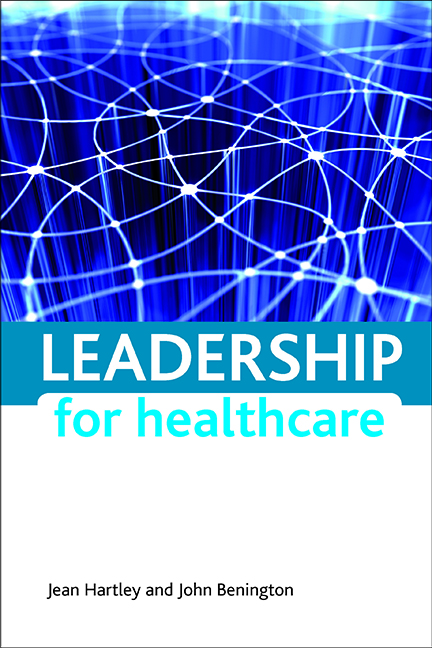Book contents
- Frontmatter
- Contents
- List of tables and figures
- Acknowledgements
- Chapter 1 Introducing leadership
- Chapter 2 Leadership concepts
- Chapter 3 Characteristics of leadership
- Chapter 4 The contexts of leadership
- Chapter 5 The challenges of leadership
- Chapter 6 The capabilities of leadership
- Chapter 7 Consequences of leadership
- Chapter 8 Leadership development
- Chapter 9 Conclusions
- References
- Index
Chapter 2 - Leadership concepts
Published online by Cambridge University Press: 01 September 2022
- Frontmatter
- Contents
- List of tables and figures
- Acknowledgements
- Chapter 1 Introducing leadership
- Chapter 2 Leadership concepts
- Chapter 3 Characteristics of leadership
- Chapter 4 The contexts of leadership
- Chapter 5 The challenges of leadership
- Chapter 6 The capabilities of leadership
- Chapter 7 Consequences of leadership
- Chapter 8 Leadership development
- Chapter 9 Conclusions
- References
- Index
Summary
In this chapter:
We note that there are many and varied definitions and ideas about what leadership is and we explore the different interpretations. The chapter examines three main approaches to conceptualising leadership, in terms of a focus on the person, the position or the processes. It is valuable to be aware of these different concepts of leadership in thinking about leadership otherwise talk and action may be at cross-purposes. Each emphasises different facets of leadership and may be incomplete on its own.
This chapter examines the first segment of the Warwick Six C Leadership Framework set out in the previous chapter. So, here we examine leadership concepts. Why use the plural (that is, concepts) rather than the singular (that is, concept) when discussing leadership? There are very many definitions of leadership provided by academics and the term is used in myriad ways in everyday speech. Furthermore, the term has changed in emphasis or approach over time, as overviews of the history of leadership research show (for example, Storey, 2004; Parry and Bryman, 2006).
These different emphases could be the basis for considerable confusion unless we unpack and examine the various ways in which the term leadership is defined and used. Grint (2000) argues that the term is ‘multifaceted’. Many writers avoid the complexity entirely and fail to indicate what they mean by leadership!
What is meant by the term leadership?
An early definition of leadership from the 1950s is still helpful:
Leadership may be considered as the process (act) of influencing the activities of an organized group in its efforts towards goal setting and goal achievement. (Stogdill, 1950, p 3)
This has a number of elements – it views leadership as a social and relational process of influence occurring within a group. So, leadership is seen here not just in terms of individual characteristics but about what happens between leaders and those being influenced. Stogdill's definition is about an organised group, although there may be arguments that leadership can have wider impacts, for example, outside as well as inside the organisation. The definition also links leadership to purposes – goal setting and/or goal achievement. This suggests that the work that the group aims to do together is central to the definition. This definition is focused not on a person but on a process (influence).
- Type
- Chapter
- Information
- Leadership for Healthcare , pp. 13 - 24Publisher: Bristol University PressPrint publication year: 2010



